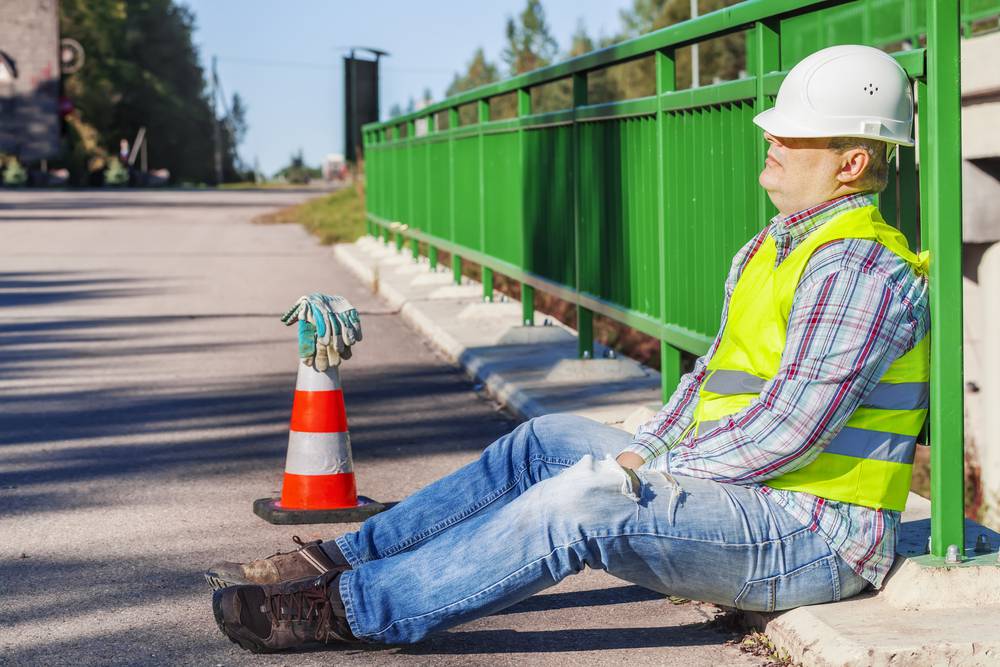Worker fatigue is often an overlooked hazard on the construction site. Fatigue, whether physical or mental, impairs a construction worker’s ability to safely and effectively perform their job duties. It increases the risk of accidents and injuries which can lead to unnecessary workers’ compensation costs and can greatly reduce productivity on a project.
Common causes of worker fatigue include extended hours, night work and increased work load. Physically demanding and repetitive work, which is the norm in construction, is a big contributor to construction worker fatigue. Work that requires a high level of concentration, like operating heavy equipment, can also lead to worker fatigue. Another factor that leads to worker fatigue is environmental conditions, such as working in extreme heat or cold temperatures.
Other factors outside of work that might cause worker fatigue are lack of sleep or poor sleep, unhealthy eating habits, stress, drug and alcohol use as well as many medications. Signs of fatigue include tiredness, muscle weakness, dizziness, headaches and the inability to concentrate.
Fatigue affects a worker’s performance on the jobsite in a number of ways. Fatigued workers aren’t as alert, meaning their response and reaction time to what’s going on around them is hindered. This is critically dangerous when working in high hazard areas on the construction site. Reduced muscle capacity results in workers not being able to give it their all, leading to decreased productivity.
Fatigue makes it harder to concentrate on tasks and impairs a worker’s judgment and decision making. This can lead to a worker making careless, and often costly, mistakes. Extremely fatigued workers may nod off or fall asleep on the job. In addition to decreased productivity and increased risks for accidents and injuries, workers suffering from fatigue are often irritable and lack the motivation to properly perform their job duties.
To combat construction worker fatigue, employers should develop a fatigue management plan to help reduce the risk of fatigue-related accidents. Employers should make workers aware of the dangers of working while fatigued. Don’t overload workers with too much or put unrealistic expectations for the completion of tasks because workers will feel compelled to push themselves too hard to complete them.
Employers should monitor workers for signs of fatigue. There is even wearable technology designed to monitor worker fatigue. Ensure that workers are taking adequate breaks throughout the day. Make sure workers are drinking plenty of fluids, especially on hot days, as dehydration can contribute to worker fatigue. Employers need to be mindful of the effects that shift work, overnight work and extended hours have on their employees.
While a quick nap or a jolt of caffeine might help with staying alert and focused for a brief period, the only true cure for worker fatigue is sleep. Workers should try and get a full night’s sleep, typically between seven and nine hours, in order to be fully rested. Exercise is a great way to boost energy levels and reduce the likelihood of feeling fatigued at work. Eating a healthy diet and cutting back on junk food and fast food also helps fight fatigue.
Employers are tasked with keeping their employees safe. Worker fatigue is a serious issue that shouldn’t be ignored as it can be costly and lead to serious accidents and injuries on the construction site.
